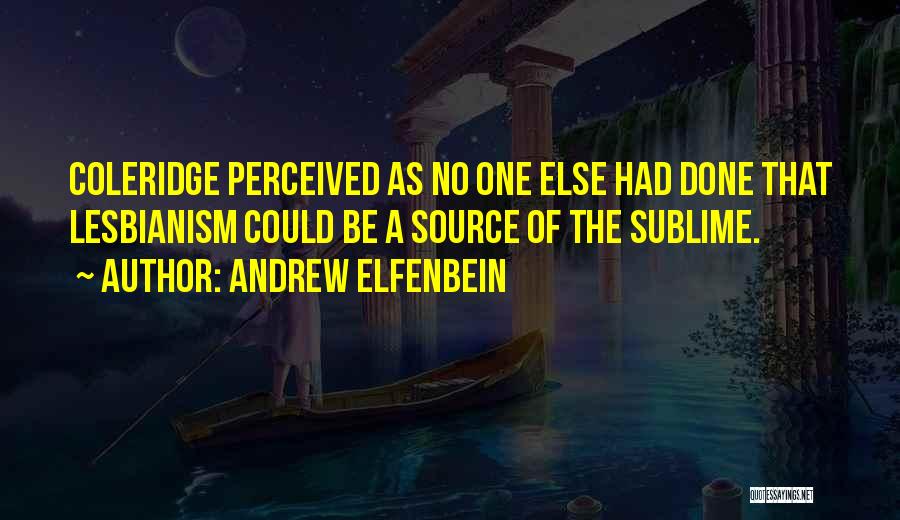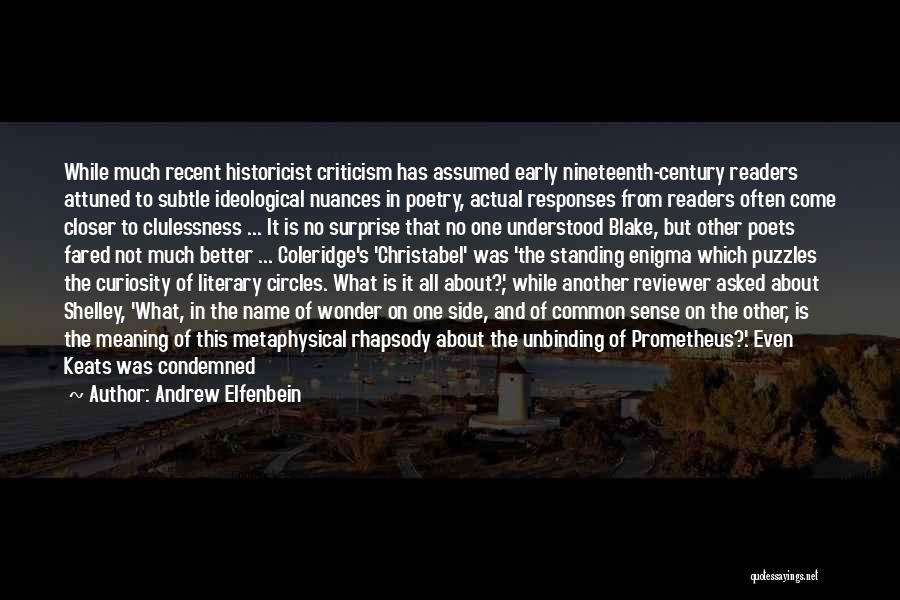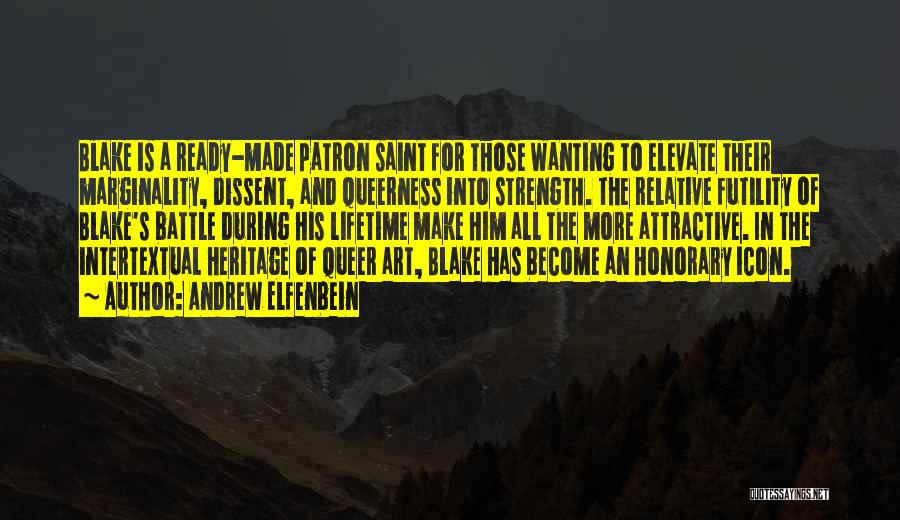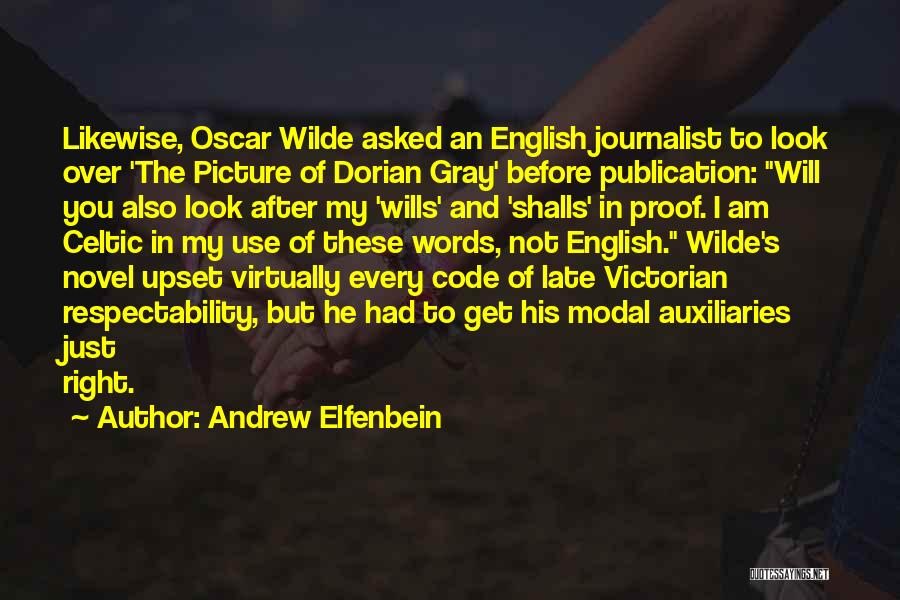Andrew Elfenbein Quotes & Sayings
Enjoy the top 4 famous quotes, sayings and quotations by Andrew Elfenbein.
Famous Quotes By Andrew Elfenbein

Coleridge perceived as no one else had done that lesbianism could be a source of the sublime. — Andrew Elfenbein

While much recent historicist criticism has assumed early nineteenth-century readers attuned to subtle ideological nuances in poetry, actual responses from readers often come closer to clulessness ... It is no surprise that no one understood Blake, but other poets fared not much better ... Coleridge's 'Christabel' was 'the standing enigma which puzzles the curiosity of literary circles. What is it all about?', while another reviewer asked about Shelley, 'What, in the name of wonder on one side, and of common sense on the other, is the meaning of this metaphysical rhapsody about the unbinding of Prometheus?'. Even Keats was condemned for 'his frequent obscurity and confusion of language' and his 'unintelligible quaintness'. Byron, never to be outdone, boasted in 'Don Juan' that not only did he not understand many of his fellow poets, he did not understand himself either: 'I don't pretend that I quite understand / My own meaning when I would be very fine.' ... — Andrew Elfenbein

Blake is a ready-made patron saint for those wanting to elevate their marginality, dissent, and queerness into strength. The relative futility of Blake's battle during his lifetime make him all the more attractive. In the intertextual heritage of queer art, Blake has become an honorary icon. — Andrew Elfenbein

Likewise, Oscar Wilde asked an English journalist to look over 'The Picture of Dorian Gray' before publication: "Will you also look after my 'wills' and 'shalls' in proof. I am Celtic in my use of these words, not English." Wilde's novel upset virtually every code of late Victorian respectability, but he had to get his modal auxiliaries just right. — Andrew Elfenbein





